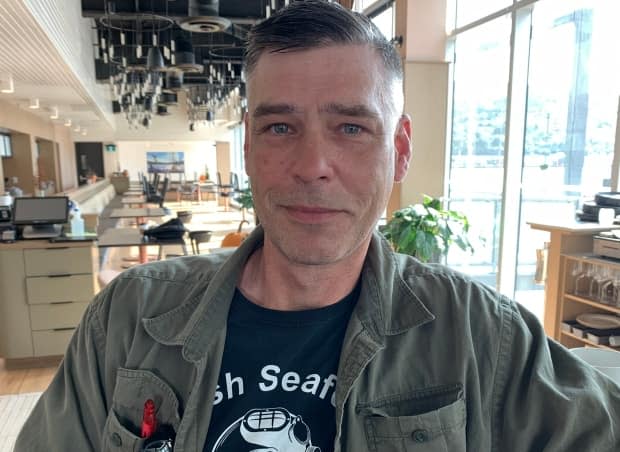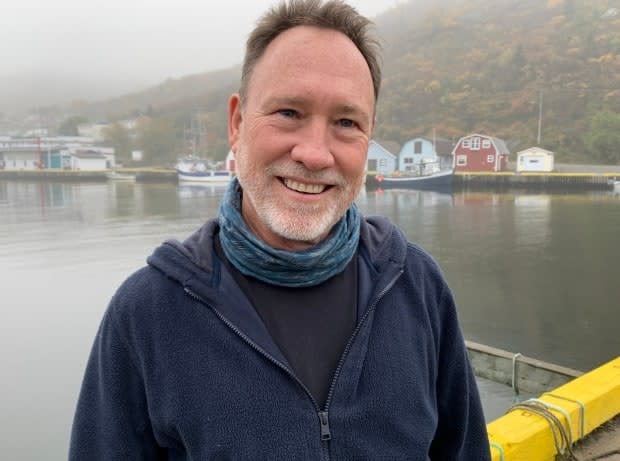How this ocean-to-table operation is helping the N.L. economy by keeping it local
Through late summer and early fall, Tim Ball spent as much time as possible underwater in his dive gear, scouring the seabed off the Burin Peninsula for scallops.
It's an ocean-to-table operation that sees his hand-harvested scallops quickly making their way to dinner plates in the downtown of St. John's.
"I try to keep it all local," said Ball about his business philosophy.
With a provincial economy that's in dire straits and in need of reversing its course, Ball thinks every little bit can help— especially if the focus is keeping as many of those little bits as possible in the province.

For Ball, that means, among other things, using locally made bags and boxes for packing his scallops and using a Burin Peninsula cab company for sending his catch into St. John's.
"Because this is a primary industry ... we are in, and we are getting the actual resources from the bottom, this is creating new money for the economy," Ball said. "If the money is staying in Newfoundland, then great."
Terre Restaurant in St. John's is one of the destinations for Ball's scallops. Before the season ended last month they could be found listed on the menu as "Seared Diver Scallops."

"They're amazing," said head chef Matthew Swift.
"Anywhere else in the world ... the idea of marketing day boat scallops is sort of a pipe dream. If I were to tell friends in other places that Tim gets out of the water, and I get the scallops in as long as it takes to drive in from Burin? It's insane," he said.
On top of the quality, it's Ball's business recipe that also interests Swift.
"Just in terms of having a diverse and smaller economy, where we can support people on a more individual level," he said.

This way of thinking is something that also strikes a chord with John Schouten — Memorial University's Canada Research Chair in Social Enterprise.
Schouten says Ball's operation means more than just local spending on his supply chain. There's also a spillover effect which would also see Ball spend money at local businesses in and around Garnish, where he fishes from.
"So every hundred dollars that passes from me, to you, to somebody else here locally, that $100 is working the whole time in our favour here in the province," said Schouten in an interview last month.
Patch the bucket
It may be a small example, but there's a bigger lesson in it for the provincial government, said Schouten. He thinks the government should treat the economy like a leaky bucket, where money comes in and goes out.
"If the government could, using that metaphor, start patching the bucket to keep the money in the province longer, working harder for local businesses, local people, people who are making a living wage — that would do wonders for the stability of the economy here," he said.

Speaking of helping the economy, Ball thinks what he's doing is scalable. In addition to scallops, Ball also hand harvests sea urchin, but he thinks there's more that can be harvested as well — including kelp, sea cucumbers and periwinkles.
For that to happen, there would have to be consistent licensing periods from the federal government and more divers with commercial dive training.
Eventually Ball would like to see a special school that trains up to a dozen divers a year for this type of work.
If a community had a handful of divers, Ball said, the economic spin-off is easy to see — you need people shucking scallops and spotting the divers, gear needs repairing, supplies need to be bought.
"I think it's just a win-win situation for small communities," he said. "It could be a good economic boon."


